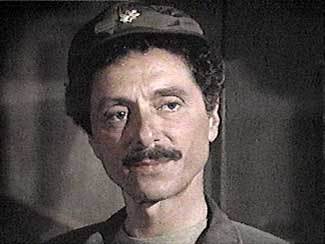If it is your preference to listen to an old radio version of this short story here is the first Youtube video. I actually like it for a video with no moving pictures. =)
Friday, November 5, 2010
Computing: A Logic Named Joe
Yesterday's class discussion focused on one of the problems with computing, what it can and cannot do. What is or is not computable. The decide and undecidable. As explained in David Harel's book, Computers ltd., (works best with firefox) there are simply some problems that computers and humans cannot solve. For example, the tile, verification, and halting problems.
William Fitzgerald Jenkins (aka Murray Leinster) brought up another problem with nearly infinite computing power, several decades before homes had computers in them. The problem? What happens when people suddenly gain logical access to all the information in the world? What do they solve and what do they create?
William Fitzgerald Jenkins (aka Murray Leinster) brought up another problem with nearly infinite computing power, several decades before homes had computers in them. The problem? What happens when people suddenly gain logical access to all the information in the world? What do they solve and what do they create?
Monday, November 1, 2010
Psychology: Sigmund Freud vs Sidney Freeman
Psychology: The deep, mystical, and fascinating study of the human mind. (There's a definition a mother would be proud of.)
Post World War One, the world found itself struggling to reconcile the horror it found in industrial war with the positive view of human nature left to it from the Enlightenment. Some of the world's population turned to the arts, enter Modernism. Other's of the world's population turned back to the sciences, enter Sigmund Freud.
In the 20th Century Sigmund Freud was at the fore of thinking on the human mind. Following in the footsteps of Dr. Sidney Freeman, who helped the M*A*S*H 4077th deal with the atrocities of war they faced far from home. One of Freud's interesting ideas deals with the development of civilization and brings with it many of the ideas first acknowledged in the Enlightenment.
Post World War One, the world found itself struggling to reconcile the horror it found in industrial war with the positive view of human nature left to it from the Enlightenment. Some of the world's population turned to the arts, enter Modernism. Other's of the world's population turned back to the sciences, enter Sigmund Freud.
 |
| Dr. Sidney Freeman |
 |
| Sigmund Freud from mansionwb |
In the 20th Century Sigmund Freud was at the fore of thinking on the human mind. Following in the footsteps of Dr. Sidney Freeman, who helped the M*A*S*H 4077th deal with the atrocities of war they faced far from home. One of Freud's interesting ideas deals with the development of civilization and brings with it many of the ideas first acknowledged in the Enlightenment.
Modernism: revisited
This weekend as I was checking up on my blog, and getting ready to write Tuesday's assignment I realized that I had not posted for last Thursday. I wrote it, but just forgot to post. (Incredible I know, but it is actually in my draft folder!) But now I have many more insightful ideas, so you all get to hear those instead.
While the Industrial Revolution changed many aspects of the lives of ordinary people for the better, it also managed to change them for the worse. The Industrial Revolution industrialized war, and for those that fought in World War One, a war fought with industrial weapons and Old World tactics, it made war a waking nightmare. As the war moved forward not only did hundreds of thousands of people died, but faith in science and God died right along with them. With God and science gone, Art took center stage. But not the Art of the Renaissance, Enlightenment, or even Romanticism, a whole new kind of art, one that showed the distorted world many saw all around them.
A personalization occurred. A theme of art for art's sake appeared, pushing against the Industrial revolution and all that it did to dehumanize the masses. In a word, artists of the modern age rejected all previously conceived forms and functions.
While the Industrial Revolution changed many aspects of the lives of ordinary people for the better, it also managed to change them for the worse. The Industrial Revolution industrialized war, and for those that fought in World War One, a war fought with industrial weapons and Old World tactics, it made war a waking nightmare. As the war moved forward not only did hundreds of thousands of people died, but faith in science and God died right along with them. With God and science gone, Art took center stage. But not the Art of the Renaissance, Enlightenment, or even Romanticism, a whole new kind of art, one that showed the distorted world many saw all around them.
A personalization occurred. A theme of art for art's sake appeared, pushing against the Industrial revolution and all that it did to dehumanize the masses. In a word, artists of the modern age rejected all previously conceived forms and functions.
Subscribe to:
Comments (Atom)